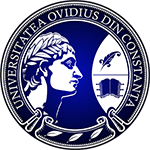The publisher and editorial board of the Ovidius University Annals of Constanta – Series Civil Engineering follow ethical standards and guidelines published by the Committee on Publication Ethics (COPE; http://publicationethics.org).
For Authors
Authors shall publish only original work, which is not plagiarized and has not been published anywhere else. The same work should not have been submitted to multiple publications unless agreed between all parties involved. Authors shall inform editors if the same research findings have been published previously or if multiple reports or multiple analyses of a single data set are under consideration for publication elsewhere. All information including data, graphs, charts, pictures, etc. shall be properly acknowledged and cited.
All parties (authors, co-authors, funders, etc.) shall be properly recognized, acknowledged, and introduced honestly. Authors shall not omit any contributors; however also shall not list co-authors without a significant contribution to the work. No contribution shall be given to any party that has brought no contribution to the work. Authors shall prevent guest, gift, and ghost authorship. All authors shall agree on the final version of the document and should agree to be listed as authors.
All authors are responsible for the entire work and for the content of their publication. All authors shall work with the editors to correct any mistakes if those have been discovered. Authors should respond appropriately to reviewers’ comments, make their best to reflect the reviewers’ comments, and provide additional information past the review process if necessary.
Presented research should have been conducted in an ethical manner. Methods used, calculations, findings, and data presentation shall be checked carefully to make sure all information at all stages is correct. The authors warrant that it does not contain any illegal or offensive content.
Research results shall be presented honestly, without falsifications, or any inappropriate data manipulation. All stages of the research shall be described clearly to allow other researchers and research teams to repeat the research. The authors shall describe complete and final research results. The work of others shall be cited properly, all read documents shall be listed; no literature that has not been used for the research shall be listed in the reference list.
If plagiarism or any kind of ethical fraud is discovered after the work has been published, the publisher has the right to retract the published work and assign it publicly as “retracted”.
Full document available at:
http://publicationethics.org/files/International%20standards_authors_for%20website_11_Nov_2011.pdf
For Reviewers
Reviewers are expected to review such works they have professional expertise for. Reviewers shall keep confidentiality of the reviewed document, shall not use any information they gain during the peer review process to their own or to third parties’ benefit, nor to discredit others. Reviewers shall also report all potential conflict interests to the journal.
Reviews are expected to be completed in a timely manner and reviewers are asked to respond as soon as possible especially if they cannot conduct the review for any reason. The review shall be fair, objective, constructive, not influenced by the authors’ identity or background, or by any commercial issues. Review should help authors to improve the quality of their work.
Full document available at: http://publicationethics.org/files/Peer%20review%20guidelines.pdf
For Editors
Editors are responsible for the content of the journal. They assure quality of the content they publish. Editors assure that all research published has been done in ethical manner. In case of any ethical misconduct, editors will take steps to identify and prevent the publication of papers where research misconduct has occurred.
Editors assure authors freedom of expression and intellectual property rights and ensure confidentiality of all materials and information gained during the peer review and publication process.
All articles in the Civil Engineering Journal are peer-reviewed. If non-peer-reviewed articles are published, these will be clearly marked. Peer review is conducted by qualified reviewers and professionals in the subject area. Peer review is guaranteed to be fair, unbiased, and a timely process. Editors provide information to reviewers, communicate with them on issues related to their agreement to review papers, and protect the reviewers’ identity within double- blind peer review process.
The decision on acceptance / rejection of the paper is done upon the paper’s importance and suitability for the journal in terms of its originality, validity, and aims of the journal, and based on the peer-review process. Authors are given an opportunity to respond to any comments or critique. Editors respond to all complaints and make every effort to resolve these. In case of any incorrect information, editors publish errata, or clarifications immediately when necessary. In case of misconduct, or suspicion of misconduct, editors take all steps to pursue and properly investigate all individual cases and draw appropriate conclusions. Commercial considerations do not affect editorial decisions, nor the quality or scope of the articles published.
Editors have tools to deal with any conflicts of interest of their staff, authors, reviewers, editorial board, owner / publisher, and their own.
Full document available at: http://publicationethics.org/files/Code%20of%20Conduct.pdf

